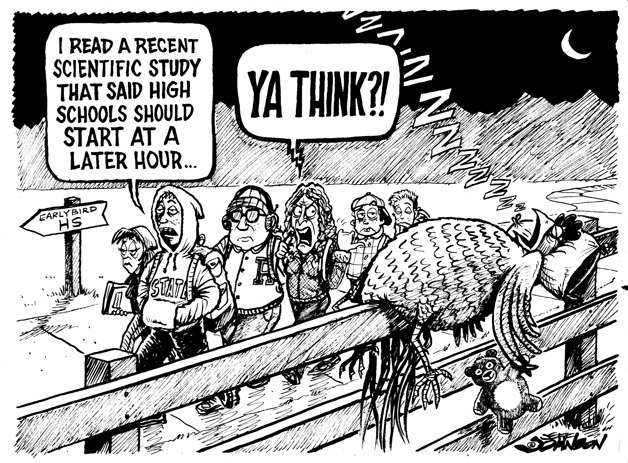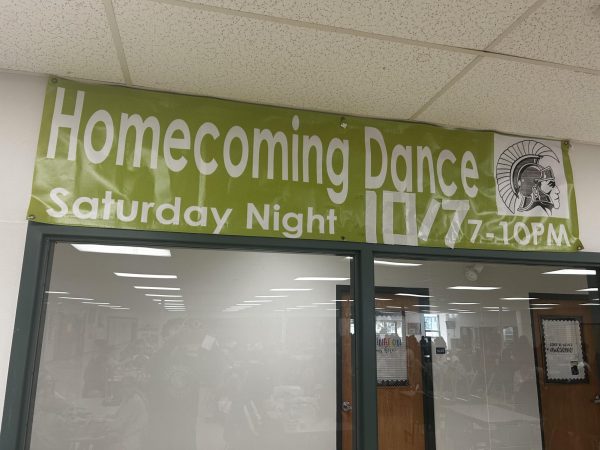When it comes to schools’ start times, the science speaks volumes
November 12, 2019
The alarm from the cell phone pierces the quiet inside your bedroom. It is 6 a.m. Again. Your hand shoots out from under the covers and silences the ear-splitting alarm. “It’s only Wednesday,” you groan as you pull the warm covers over your head and drift back into sleep.
An hour later, you wake up. Again. Only this time it is from the emergency alarm you set for yourself in case this happens. You have 20 minutes to get ready, get to the school and get to your class.
This is the average morning for many teenagers, but it doesn’t need to be.
All the research seems to indicate that school should start later. In 2014, 93 percent of high schools and 83 percent of middle schools started before 8:30 a.m, which is recommended by the American Academy of Pediatrics (AAP).
But many schools start much earlier. For example, the average New Hampshire school start time is 7:45 a.m. This is 45 minutes earlier than recommended by the AAP.
Let’s consider the math.
If school starts at 7:45 a.m., and teenagers need to get an average of nine hours of sleep, the student would need to go to bed around 9:30 p.m.
Now, many high school students work after school. Many others play sports, participate in clubs and/or volunteer work. Let’s say a student has school from 7:45 a.m. to 2: 35 p.m. then practice from 2:50 to 4 p.m, and work from 4:30 p.m. to 9:30 p.m. The student is then supposed to do homework, eat dinner, shower and spend time with family.
How is it possible to be in bed at 9:30?
A major concern for the Center of Disease Control (CDC) is that sleep deprivation leads to obesity, poor grades, drug and alcohol abuse and, in some cases, mental health problems.
The CDC also notes that due to changes during puberty, adolescents get tired later at night, which in turn makes them wake up later due to shifts in biological rhythms. Dr. Mary A. Carskadon of Brown University found secretions of melatonin, a natural chemical that makes humans tired, began later in the night and stopped later in the morning. This makes it harder for teenagers to fall asleep and wake up early.
Teenagers don’t stay up all night because they don’t care about their education or well-being– teenagers stay up later at night because of the brain way their brains are hard-wired.
School districts should give students a break when it comes to their sleep schedule and start school later for reasons that are backed up with scientific facts. Students will rest more, do better in school and, most importantly, they will feel better.







